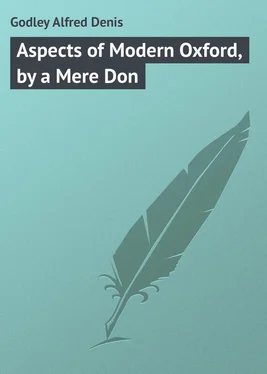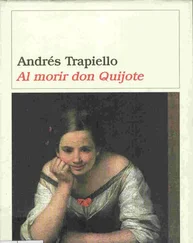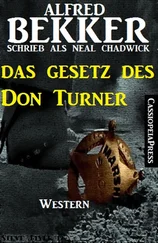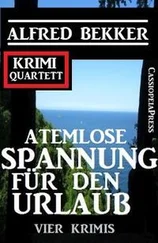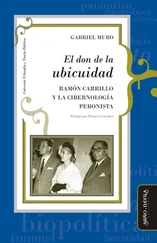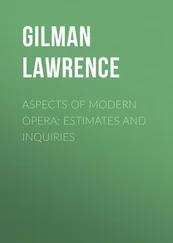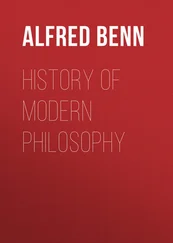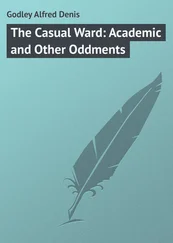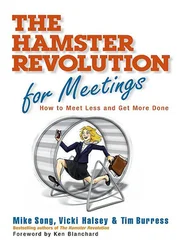Alfred Godley - Aspects of Modern Oxford, by a Mere Don
Здесь есть возможность читать онлайн «Alfred Godley - Aspects of Modern Oxford, by a Mere Don» — ознакомительный отрывок электронной книги совершенно бесплатно, а после прочтения отрывка купить полную версию. В некоторых случаях можно слушать аудио, скачать через торрент в формате fb2 и присутствует краткое содержание. Жанр: foreign_prose, на английском языке. Описание произведения, (предисловие) а так же отзывы посетителей доступны на портале библиотеки ЛибКат.
- Название:Aspects of Modern Oxford, by a Mere Don
- Автор:
- Жанр:
- Год:неизвестен
- ISBN:нет данных
- Рейтинг книги:5 / 5. Голосов: 1
-
Избранное:Добавить в избранное
- Отзывы:
-
Ваша оценка:
- 100
- 1
- 2
- 3
- 4
- 5
Aspects of Modern Oxford, by a Mere Don: краткое содержание, описание и аннотация
Предлагаем к чтению аннотацию, описание, краткое содержание или предисловие (зависит от того, что написал сам автор книги «Aspects of Modern Oxford, by a Mere Don»). Если вы не нашли необходимую информацию о книге — напишите в комментариях, мы постараемся отыскать её.
Aspects of Modern Oxford, by a Mere Don — читать онлайн ознакомительный отрывок
Ниже представлен текст книги, разбитый по страницам. Система сохранения места последней прочитанной страницы, позволяет с удобством читать онлайн бесплатно книгу «Aspects of Modern Oxford, by a Mere Don», без необходимости каждый раз заново искать на чём Вы остановились. Поставьте закладку, и сможете в любой момент перейти на страницу, на которой закончили чтение.
Интервал:
Закладка:
Godley A. D. Alfred Denis
Aspects of Modern Oxford, by a Mere Don
I-OF DONS AND COLLEGES
'We ain't no thin red heroes, nor we ain't no blackguards too,
But single men in barracks, most remarkable like you.'
Fellows of Colleges who travel on the continent of Europe have, from time to time, experienced the almost insuperable difficulty of explaining to the more or less intelligent foreigner their own reason of existence, and that of the establishment to which they are privileged to belong. It is all the worse if your neighbour at the table d'hôte is acquainted with the Universities of his own country, for these offer no parallel at all, and to attempt to illustrate by means of them is not only futile but misleading. Define any college according to the general scheme indicated by its founder; when you have made the situation as intelligible as a limited knowledge of French or German will allow, the inquirer will conclude that ' also it is a monastic institution,' and that you are wearing a hair shirt under your tourist tweeds. Try to disabuse him of this impression by pointing out that colleges do not compel to celibacy, and are intended mainly for the instruction of youth, and your Continental will go away with the conviction that an English University is composed of a conglomeration of public schools. If he tries to get further information from the conversation of a casual undergraduate, it will appear that a Ruderverein on the Danube offers most points of comparison.
Fellows themselves fare no better, and are left in an-if possible-darker obscurity. That they are in some way connected with education is tolerably obvious, but the particular nature of the connexion is unexplained. Having thoroughly confused the subject by showing inconclusively that you are neither a monk, nor a schoolmaster, nor a Privat Docent , you probably acquiesce from sheer weariness in the title of Professor , which, perhaps, is as convenient as any other; and, after all, Professoren are very different from Professors. But all this does nothing to elucidate the nature of a College. To do this abroad is nearly as hard as to define the function of a University in England.
For even at home the general uneducated public, taking but a passing interest in educational details, is apt to be hopelessly at sea as to the mutual relation of Colleges and Universities. In the public mind the College probably represents the University: an Oxonian will be sometimes spoken of as 'at College;' University officials are confused with heads of houses, and Collections with University examinations. That foundation which is consecrated to the education of Welsh Oxonians is generally referred to in the remote fastnesses of the Cymru as Oxford College. As usual, a concrete material object, palpable and visible, is preferred before a cold abstraction like the University. Explain to the lay mind that a University is an aggregate of Colleges: it is not, of course, but the definition will serve sometimes. Then how about the London University, which is an examining body? And how does it happen that there is a University College in Oxford, not to mention another in Gower Street? and that Trinity College across the water is often called Dublin University? All these problems are calculated to leave the inquirer very much where he was at first, and in him who tries to explain them to shake the firm foundations of Reason.
It may be a truism, but it is nevertheless true-according to a phrase which has done duty in the Schools ere now-that the history of the University is, and has been for the last five hundred years, the history of its Colleges; and it is also true that the interweaving of Collegiate with University life has very much complicated the question of the student's reason of existence. We do not, of course, know what may have been the various motives which prompted the bold baron, or squire, or yeoman of the twelfth or thirteenth century to send the most clerkly or least muscular of his sons to herd with his fellows in the crowded streets or the mean hostelries of pre-collegiate Oxford; nor have we very definite data as to the kind of life which the scholar of the family lived when he got there. Perhaps he resided in a 'hall;' according to some authorities there were as many as three hundred halls in the days of Edward I.; perhaps he was master of his own destinies, like the free and independent unattached student of modern days-minus a Censor to watch over the use of his liberties. But what is tolerably certain is that he did not then come to Oxford so much with the intention of 'having a good time' as with the desire of improving his mind, or, at least, in some way or other taking part in the intellectual life of the period, which then centred in the University. It might be that among the throngs of boys and young men who crowded the straitened limits of mediaeval Oxford, there were many who supported the obscure tenets of their particular Doctor Perspicuus against their opponents' Doctor Inexplicabilis rather with bills and bows than with disputations in the Schools; but every Oxonian was in some way vowed to the advancement of learning-at least, it is hard to see what other inducement there was to face what must have been, even with all due allowance made, the exceptional hardships of a student's life. Then came the Colleges-University dating from unknown antiquity, although the legend which connects its foundation with Alfred has now shared the fate of most legends; Balliol and Merton, at the end of the thirteenth century; and the succeeding centuries were fruitful in the establishment of many other now venerable foundations, taking example and encouragement from the success and reputation of their earlier compeers. In their original form colleges were probably intended to be places of quiet retirement and study, where the earnest scholar might peacefully pursue his researches without fear of disturbance by the wilder spirits who roamed the streets and carried on the traditional feuds of Town and Gown or of North and South.
By a curious reverse of circumstances the collegian and the ' scholaris nulli collegio vel aulae ascriptus ' of modern days seem to have changed characters. For I have heard it said by those who have to do with college discipline that their alumni are no longer invariably distinguished by 'a gentle nature and studious habits'-qualities for which, as the Warden of Merton says, colleges were originally intended to provide a welcome haven of rest, and which are now the especial and gratifying characteristics of that whilom roisterer and boon companion, the Unattached Student.
We have it on the authority of historians that the original collegiate design was, properly speaking, a kind of model lodging-house; an improved, enlarged, and strictly supervised edition of the many hostels where the primitive undergraduate did mostly congregate. Fellows and scholars alike were to be studious and discreet persons; the seniors were to devote themselves to research, and to stand in a quasi-parental or elder-brotherly relation to the juniors who had not yet attained to the grade of a Baccalaureus. Very strict rules-probably based on those of monastic institutions-governed the whole body: rules, however, which are not unnecessarily severe when we consider the fashion of the age and the comparative youth of both fellows and scholars. Many scholars must have been little more than children, and the junior don of the fifteenth century may often have been young enough to receive that corporal punishment which our rude forefathers inflicted even on the gentler sex.
'Solomon said, in accents mild,
Spare the rod and spoil the child;
Be they man or be they maid,
Whip 'em and wallop 'em, Solomon said'
Интервал:
Закладка:
Похожие книги на «Aspects of Modern Oxford, by a Mere Don»
Представляем Вашему вниманию похожие книги на «Aspects of Modern Oxford, by a Mere Don» списком для выбора. Мы отобрали схожую по названию и смыслу литературу в надежде предоставить читателям больше вариантов отыскать новые, интересные, ещё непрочитанные произведения.
Обсуждение, отзывы о книге «Aspects of Modern Oxford, by a Mere Don» и просто собственные мнения читателей. Оставьте ваши комментарии, напишите, что Вы думаете о произведении, его смысле или главных героях. Укажите что конкретно понравилось, а что нет, и почему Вы так считаете.
